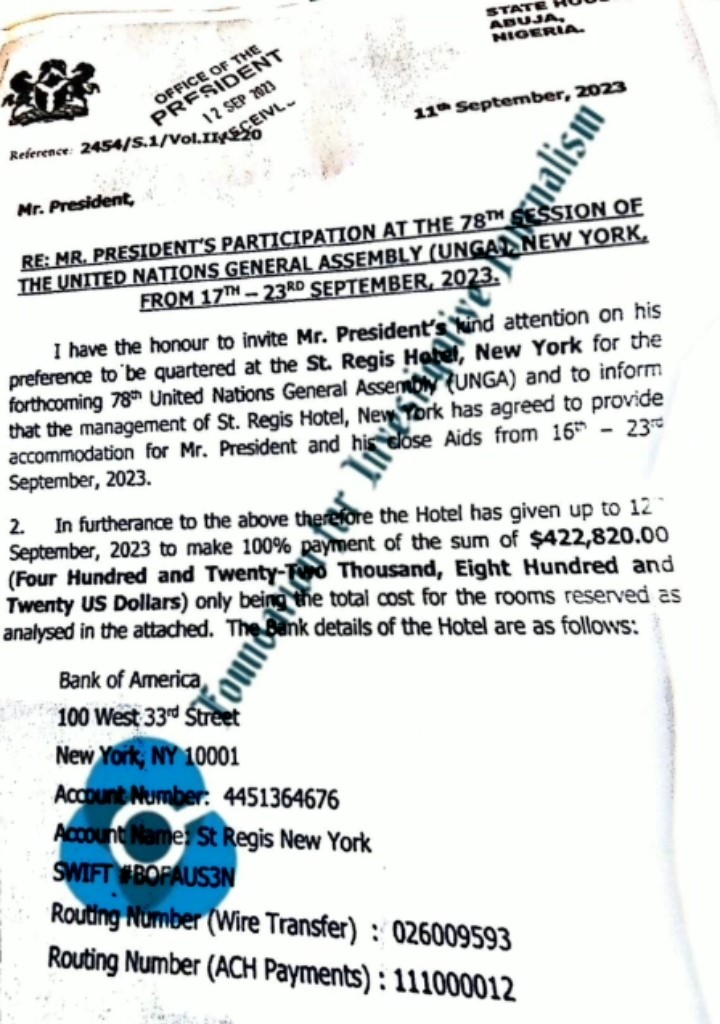By Daniel Edu
During the 78th session of the United Nations General Assembly (UNGA), it was revealed that a significant amount was spent on hotel accommodations for President Bola Tinubu. The astonishing sum of $507,384 was used for this purpose, which equates to approximately N390,690,753 at the current exchange rate.
A memo dated September 11, 2023, obtained by FIJ, outlined the expenses. A major portion of the total, $422,820 (N325.5 million), covered the cost of rooms booked for President Tinubu and his close aides at the St. Regis Hotel in New York from September 16 to 23.
The memo further revealed that the remaining $84,564 (approximately 65.1 million Naira), constituting 20 percent of the hotel reservation cost, was designated for incidentals. While the memo did not provide a detailed breakdown of the incidentals, it typically includes the expenses for various services and amenities not included in the room rates.
A brief examination of the St. Regis Hotel’s website indicates that room rates, inclusive of taxes and fees, can vary significantly, ranging from approximately $915 per night to as high as $17,273 per night.
The memo, signed by Adebiyi O. Olufunso, the permanent secretary of the State House, and addressed to the president, was titled ‘Re: Mr. President’s Participation at the 78th Session of the United Nations General Assembly (UNGA), New York from 17th-23rd September 2023.’
Notably, the memo sought the president’s approval, and it included the statement “Payment authorized as requested,” indicating the president’s consent for the expenditure.
Part of the document highlighted that the Federal Ministry of Finance and the Office of the Accountant General of the Federation were informed and ready to process the payment once the president approved it.
The memo also appealed to the president to authorize the Federal Ministry of Finance, Budget, and National Planning to make the necessary arrangements for the release of the funds from the 15% Wheat Grain Levy Pool Account.
It’s important to note that the Nigerian government had implemented a 15 percent levy on wheat grain imports in 2012, aiming to boost domestic wheat production and reduce the nation’s food import expenses.





